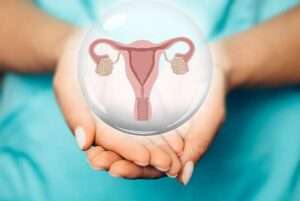Gynecological Disorders

In Ayurveda, gynecological disorders are understood within the framework of dosha imbalances, individual constitution (Prakriti), and the cyclical nature of a woman’s reproductive life. Ayurveda recognizes the influence of the three doshas—Vata, Pitta, and Kapha—on women’s health, particularly in relation to the menstrual cycle, fertility, and overall well-being. Gynecological disorders are seen as disruptions in the balance of these doshas, affecting the reproductive organs and hormonal equilibrium.
Introduction to Gynecological Disorders
1. Menstrual Health:
– Ayurveda places significant emphasis on the regularity and health of the menstrual cycle. Irregularities, pain, or excessive bleeding are often attributed to dosha imbalances.
2. Dosha Imbalances:
– Different gynecological disorders may arise from imbalances in specific doshas:
– Vata Imbalance: Associated with conditions like irregular menstruation, scanty flow, or conditions causing dryness.
– Pitta Imbalance: May manifest as heavy bleeding, inflammation, or conditions causing excess heat in the reproductive organs.
– Kapha Imbalance: Linked to disorders involving excess mucus, congestion, or conditions causing dampness.
3. Artava Kshaya and Artava Vriddhi:
– Artava in Ayurveda refers to the menstrual flow. Artava Kshaya denotes reduced menstrual flow, while Artava Vriddhi indicates excessive or prolonged bleeding.
4. Yoni Roga (Reproductive Disorders):
– Encompasses a range of gynecological issues, including infections, inflammation, and structural abnormalities in the reproductive organs.
5. Artava Dushti (Menstrual Irregularities):
– Refers to deviations from a normal menstrual cycle and includes conditions such as oligomenorrhea (infrequent menstruation) or amenorrhea (absence of menstruation).
6. Vandhyatva (Infertility):
– Ayurveda addresses infertility by identifying underlying dosha imbalances, optimizing reproductive health, and promoting overall well-being.
Now we will look detail about following diseases and its management.
PCOD & PCOS
Polycystic Ovarian Disorder / Polycystic Ovarian Syndrome can affect women's overall health.
Dysmenorrhea
Very painful cramps on menstrual days.
Leukorrhea
Intermittent Abnormal White Discharge
Irregular Menstrual Cycle
Reduced or increased Menses days.
